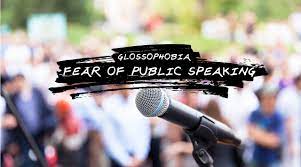Wikipedia tells us that Glossophobia or speech anxiety is the fear of public speaking. The word glossophobia comes from the Greek glossa (tongue) and phobos (fear or dread.) It is one of the most common phobias: about 75% of the world’s population struggle with this social phobia, to some extent. According to several surveys, the fear of public speaking is even greater than the fear of death.
I can say that at the beginning of my career I was nervous when public speaking. Mostly at business meetings, even in small groups. I had the butterflies in my stomach, as we say in America when we are nervous. But it was part of my job responsibilities. Starting out in Human Resources (HR), I conducted new employee orientation training meetings. Some were a couple of hours, others all day. I always enjoyed interacting with new hires, telling the company story (history), touring the facility (hotel) and reviewing company benefits and policy. I regularly had to speak at company meetings, in front of from 10 to maybe 100 people.
It wasn’t until 1990 that I distinctly recall falling in love with public speaking. It was through a corporate management training program. I was selected to head up the endeavor for my company in a state-wide roll out. As part of the program, I (along with several trainers) attended a one-week session preparing us to train groups of management employees in more than 15 different topics. And although it wasn’t an easy week, I was really challenged by it. It was exhausting, but invigorating. And as we were tested almost daily on our ability to teach the topics, I realized I really enjoyed it.
Like many of us, I took a Speech class in college; it was required. I remember enjoying it and I did well. But I didn’t think much of it. Fast forward to my career in Human Resources and I had plenty of opportunities to speak and/or train in front of small and large groups of people. Taking training courses with master trainers, real professionals in the trade, was an excellent opportunity to hone my skills. I attended numerous classes over the years that provided group training skills and with each, my own skills strengthened and grew.
As my position within Human Resources grew, I had more opportunities to speak in front of large groups. I recall addressing a group of over 500 at an international company conference. I also had opportunities to speak at national human resources conferences. Many times I was asked to host (MC) a company meeting. I do recall enjoying that very much. Speaking in front of a group of people that I knew was comfortable and fun. Give me a microphone, and the “frustrated comedienne” within me came out! Where did she come from? Honestly, I can’t say. I just know I have a sharp wit and great sense of humor.
How did I get my confidence? What did I do to feel comfortable speaking in front of groups of people? I must admit that many tips I picked up in training classes. In addition, back in 2012/13 I think it was, I was given a great birthday gift by my team at work: An Improv Class at a Comedy Club in Santa Monica. I learned a lot about improvisation, what to do and what not to do. Maybe you’ve heard this before? In Improv, you never say NO. That just stops the conversation. To whatever another person “on stage” says, we always answer, “yes, and…” and we then take the conversation into whatever area we are comfortable with.


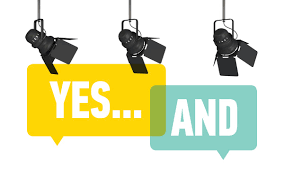
The Improv Class and tips were something that I absorbed later in my career. Prior to that, the tips that I learned and then later taught to many trainers working with me in Human Rersources, were:
- Preparation: if you are familiar with your topic and well prepared, you are 50% there.
- Content: nobody knows what order your notes are in, nor if you’ve missed an item in your outline. Don’t worry about it.
- Time: be conscious of your time, never go over but also do not short-change your audience.
- Pace: nerves will make us speak fast; breathe, take pauses, look for a friendly face in the audience and smile.
- Practice/Rehearse: always take the time to practice your speech and rehearse preferably in the room where you will be speaking. Become familiar with your surroundings and any equipment that will be used.
- Don’t “wing it” and don’t ad-lib: that’s for professionals and people who do this all the time and know their topic inside and out. If you are a nervous speaker, make sure you prepare and refer to your written notes.
- The Chosen One: the majority of people sitting in your audience have a fear of public speaking. They do not wish to be in your place. They admire you for it.
- I’m lost: if you lose your place, and unsure of how to get back on track, ask the audience a question. But make it an open-ended question (not a yes/no question). Maybe review something you’ve already covered.
I can’t say there’s any magic to my accomplished public speaking skills. Do I get nervous before speaking? Yes, I do. But nothing insurmountable. I often speak to strangers, in a restaurant, in my neighborhood, at the supermarket. I am a confident, friendly person. I’ve been told that in business, I am courageous. Perhaps that’s one way to look at it.
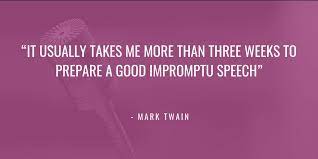
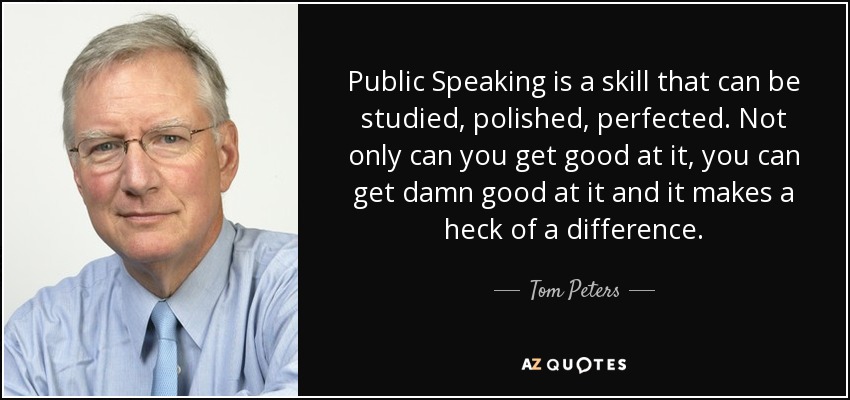
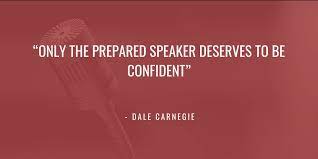
What I do know, is that I enjoy it. I’ve worked at it for many years. Certainly, now that I am retired I do not have the opportunity to speak in public. Not in the way I used to in business. Not to large groups of people. Neither do I have the opportunity to impart knowledge or train people. But I do teach English at a kid’s shelter twice a week (and I love it!). And whenever I have an opportunity to speak to strangers in my daily life or in my travels, I take those opportunities to make new acquaintances, to share a smile, to pay a compliment. Give it a try… I promise it’s not scarier than death.

